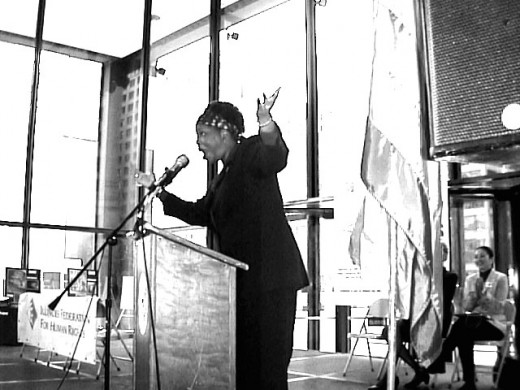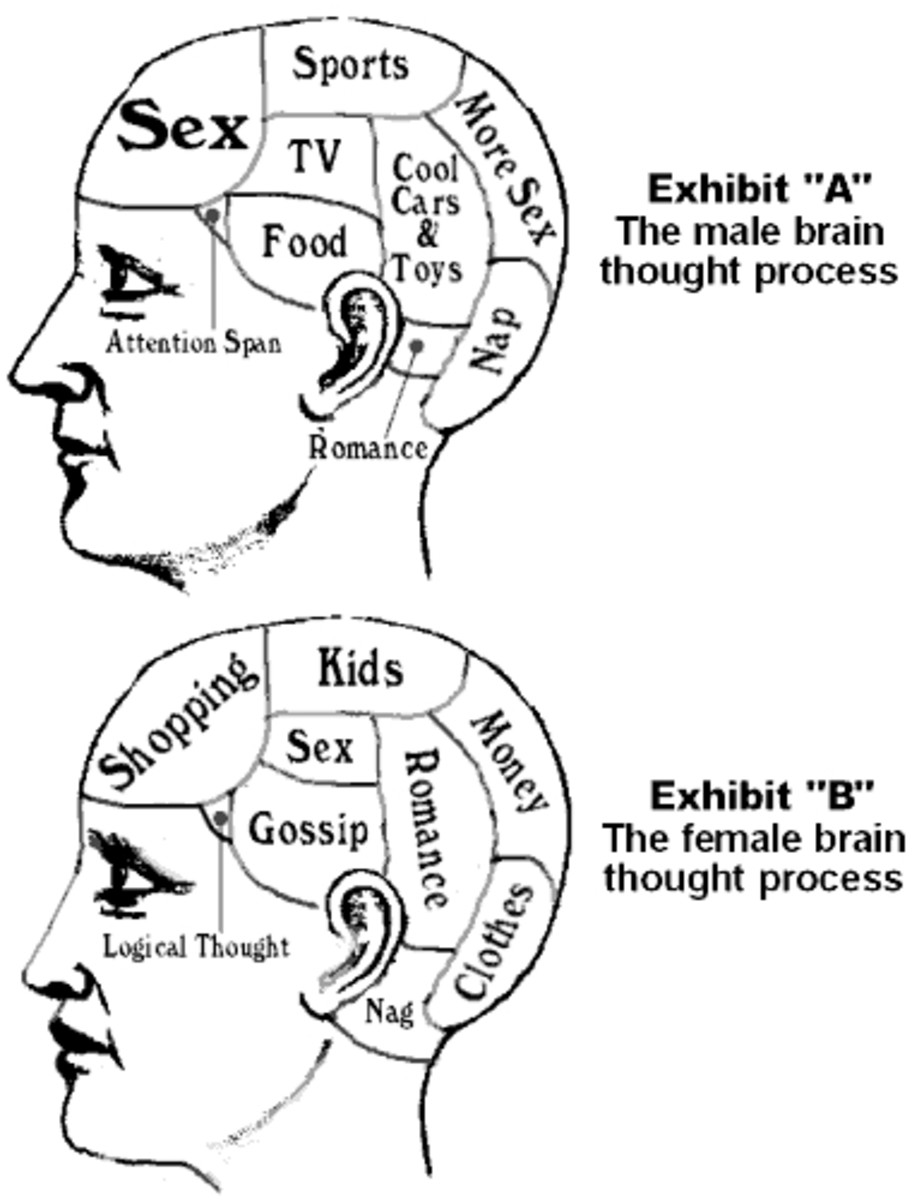The Role of the African Feminist from an Outside Perspective

The role of the African or African-American feminists is unlike that of any other woman. While they may share traits and duties with other feminists in the world, there exist characteristics singular to them. A combination of history and socio-political factors create a very different situation for African feminists, which makes their accounts all the more interesting and necessary for the advancement of black women’s rights and the strength of the black feminist movement.
For the black feminist, her role is about more than recognizing and explaining what it is to be a woman. Gloria Anzaldúa, a Chicana feminist, dislikes being categorized according to sex or race alone because each part of her identity influences each other (Anzaldúa, 1999). Understanding identity is about considering the intersections of multiple categories. She also expressed that it is important to recognize how women of color have historically resisted their oppressions.
This perspective can be applied to African feminists because there are problems and issues that black women face because they are black and because they are women, not because they are either/or. Of course, not all people of color share the exact same experiences, as different races and cultures have separate histories; however, the basic argument is still valid. Therefore, black feminism argues that sexism, class oppression, and racism – among other oppressions – are linked and must be treated together (Collins, 1990, p. 19).
“Outsiders” might view the role of African feminists as burdensome; while the task of advancing the rights of multicultural women might be shared with other females (and males) of color, there are again those points that apply to and are understood by only black women. Therefore, it is up to African feminists to represent their cultures and traditions for those unfamiliar with them.
An “outsider” might also get a sense that black feminists are trying to make up for lost time. This illustrates another encumbrance to black feminists; while endeavoring to explain the situation of black women to “outsiders”, they have had to overcome exclusive issues that may or may not have a historical or traditional basis in order to finally express themselves. Such oppressive institutions as slavery have set black women back in various ways socially and politically by, for instance, not allowing access to formal education, making it difficult for them to express the ways in which they do have agency and influence in society. For instance, Baba of Karo was special because it was the first published, first-hand account of an African peasant woman (O’Barr, 1997, p. 319). The piece was integral because, although it was fairly simple in its description of a typical trading activity, it communicated the power and authority involved in the economic position of Hausa women. The same goes with Mariama Bâ, whose work was important in its landmark depiction of Senegalese women; however, Bâ first had to “begin the reappraisal of gender within the African novel while simultaneously confronting her own marginal status as a writer” (Meeker, 1997, p. 221).
Black feminists risk being misunderstood by those unfamiliar with their purpose and with African culture as a whole. In trying to represent women and their experiences within Senegalese culture, Bâ was accused of eurocentrism and classism (Meeker, p. 220). Similarly, Ogundipẹ-Leslie and her group Women in Nigeria (WIN) faced difficulties in trying to reconcile efforts toward women’s liberation as well as those toward national liberation (DeLamotte, 1997, p. 453). There are often a number of different facets of identity struggling to come to light through feminist struggles – including not just gender and race, but also class, nationality, and other pieces. This creates another difficulty for African feminists trying to promote the status of black women.
With that said, the role of African feminists includes showing others that there is no such thing as a “universal woman” or “universal feminist”; the different experiences undergone by various women warrant different definitions of women and feminists. This is why black women rejected the Feminist Movement of the 1960s; it was mainly a white women’s fight. Similarly, black Civil Rights groups focused more on gaining rights for black males rather than for all African-Americans. There are stereotypes and other issues specific to black women, and so it is the role of black feminists to bring these issues to light.
Interestingly, this task may call for the manpower of men; multiracial feminism emphasizes that there are multiple systems of oppression that affect both women and men (Anzaldúa & Keating, 2002). Mọlara Ogundipẹ-Leslie’s feminism is also “grounded firmly in a broad political context of solidarity with progressive men,” and she referenced their political vision as a form of resistance and a way of seeing things as a whole (DeLamotte, p. 454). She preferred to align more with “womanist” values, supporting the survival and wholeness of peoples rather than be “separatist or adversarial to men” (qtd. in DeLamotte, p. 454). However, this standpoint conflicted with those of many prevalent, black feminists in the 1960s. Those looking at African feminism from the outside might see this rift in thinking and consider it to be a weakness in the feminist movement.
A balance must be struck in seeking and rejecting support, as turning away people may weaken the foundation of African feminism and undermine the movement overall. Clearly, this is a delicate but integral part of the feminist movement; only a select few truly understand the heart and soul behind African feminism, and it makes sense that African feminists would prefer to maintain purity and focus within their movement. However, excessive selectivity may also weaken the movement by reducing strength in numbers. This is yet another issue black women must overcome.
Whether through writing or other forms of self-expression, African feminists have many things to consider when working to advance the rights of black women. As minorities as well as women, there are a number of loyalties tugging at them from various sides. For those less familiar with African cultures, representing their identities and stories might seem like a daunting and weighty task. However, in reality, sharing the strengths and weaknesses of those cultures – which often results in important social and political implications – may be as simple as telling a story of their lives, as we see through the accounts of various African feminists.
Additional Information
- AfricanFeminism
– an exploration, a re-imagination, a change in perspective. (by Billene Seyoum) - Women's WORLD
Works Cited
Anzaldúa, G. (1999). Borderlands/la frontera: The new mestiza. San Francisco: Spinsters/Aunt Lute.
Anzaldúa, G., & Keating, A. (2002). This bridge called home. New York: St. Martin’s Press.
Collins, P.H. (1990). Defining Black Feminist Thought. Black Feminist Thought: Knowledge, Consciousness, and the Politics of Empowerment. New York: Routledge.
DeLamotte, E. (1997). Mọlara Ogundipẹ-Leslie – “Stiwanism: Feminism in an African Context.” Women Imagine Change: A Global Anthology of Women’s Resistance from 600 B.C.E. to Present. New York: Routledge.
Meeker, N. (1997). Mariama Bâ – “Till Tomorrow, My Friend.” Women Imagine Change: A Global Anthology of Women’s Resistance from 600 B.C.E. to Present. New York: Routledge.
O’Barr, J.F. (1997). Baba of Karo – “Girls’ Trading Expeditions, Bond-Friends, and Marriage.” Women Imagine Change: A Global Anthology of Women’s Resistance from 600 B.C.E. to Present. New York: Routledge.








